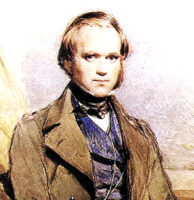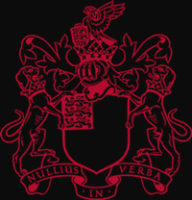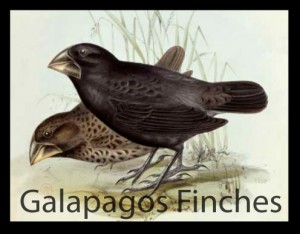Species is a fundamental concept in modern biology, forming the building blocks of Earth’s vast and diverse biosphere. Charles Darwin applied the term species 1,930 times in the 6th and last edition of the Origin of Species, published in 1872, a title underscoring the central role of species.
However, “Darwin’s species problem” begins with the definition of species. Three years before publication, in an 1856 letter to botanist Joseph D Hooker, Darwin explains his dilemma with the “indefinable” term species –
“It is really laughable to see what different ideas are prominent in various naturalists’ minds, when they speak of “species…. It all comes, I believe, from trying to define the indefinable.”
By the 6th edition of “The Origin of Species” in 1872, Darwin explains further why he never defines the term, noting –
“No one definition has satisfied all naturalists; yet every naturalist knows vaguely what he means when he speaks of a species. Generally the term includes the unknown element of a distinct act of creation. The term “variety” is almost equally difficult to define; but here community of descent is almost universally implied, though it can rarely be proved.”
Interestingly, Darwin’s original title was “An Abstract of an Essay on the Origin of Species and Varieties by Means of Natural Selection.” However, John Murray thought the title was too long – and should drop the phrases “an abstract of an essay” and “and varieties.” Darwin agreed –
“The heterogeneity of the class of taxa we call “species” undermines its predictive [evolutionary] and explanatory power.”
Darwin acknowledges that the “species problem” results from naturalists attempting to group species according to inferred evolutionary (taxa) similarities. The problem is not nature’s problem but an evolution paradigm-induced problem.
The Royal Society Awards Darwin, Until
 Three years after returning on the HMS Beagle in 1836, the Royal Society elected Darwin as a Fellow. In 1853, Darwin received a Royal Medal for his work on geology and a Copley Medal in 1853 for his work on barnacles.
Three years after returning on the HMS Beagle in 1836, the Royal Society elected Darwin as a Fellow. In 1853, Darwin received a Royal Medal for his work on geology and a Copley Medal in 1853 for his work on barnacles.
However, the Royal Society never awarded Darwin any awards following the publication of the “Origin of Species.” Although the concept of natural selection captured evolutionists’ imagination, the scientific failure to define the fundamental building block of biology was a problem too big to ignore.
Species Concept in Modern Biology
Darwin’s species problem continues in modern biology. In 2008, science writer Carl Zimmer (pictured right) in the Scientific America article “What is a Species,” could not define species, either, noting –
“The debate over species definition is far from over and is more than a mere academic spat.”
More than a decade later, science writer Mindy Weisberger in the CNN article “What defines a species?” (2023), gives a historical perspective –
“Biologists have wrestled with the concept [species] for about as long as the field of biology has existed.”
Species problems are endemic within the evolution industry.
Darwin Addresses Problem
![]() Darwin addressed the species’ problem, investing considerable effort. In the sixth and last edition of The Origin of Species, Darwin uses the term species 1,930 times. Darwin articulates the problem from an evolutionary perspective in the following twenty-four statements – with the page of each quotation.
Darwin addressed the species’ problem, investing considerable effort. In the sixth and last edition of The Origin of Species, Darwin uses the term species 1,930 times. Darwin articulates the problem from an evolutionary perspective in the following twenty-four statements – with the page of each quotation.
“Nor shall I here discuss the various definitions which have been given of the term species. No one definition has as yet satisfied all naturalists; yet every naturalist knows vaguely what he means when he speaks of a species. Generally, the term includes the unknown element of a distinct act of creation.” P. 33
“Hence, in determining whether a form should be ranked as a species or a variety, the opinion of naturalists having sound judgment and wide experience seems the only guide to follow.” P. 37
“There is no possible test but individual opinion to determine which of them shall be considered as species and which as varieties.” P. 38
“Many years ago, when comparing, and seeing others compare, the birds from the closely neighbouring islands of the Galápagos Archipelago, one with another, and with those from the American mainland, I was much struck how entirely vague and arbitrary is the distinction between species and varieties.” P. 38
“Nevertheless, no certain criterion can possibly be given by which variable forms, local forms, sub species, and representative species can be recognised.” P. 38
“The term species thus comes to be a mere useless abstraction, implying and assuming a separate act of creation.” P. 39
“But to discuss whether they ought to be called species or varieties, before any definition of these terms has been generally accepted, is vainly to beat the air.” P. 39
“Finally, De Candolle admits that out of the 300 species, which will be enumerated in his Prodromus as belonging to the oak family, at least two-thirds are provisional species, that is, are not known strictly to fulfil the definition above given of a true species.” P. 40-41
“Certainly no clear line of demarcation has as yet been drawn between species and sub-species—that is, the forms which in the opinion of some naturalists come very near to.” P. 41
“If a variety were to flourish so as to exceed in numbers the parent species, it would then rank as the species.” P. 42
“From these remarks it will be seen that I look at the term species as one arbitrarily given.” P. 42
“Finally varieties cannot be distinguished from species—except, first, by the discovery of intermediate linking forms; and, secondly, by a certain indefinite amount of difference between them.… but the amount of difference considered necessary to give to any two forms the rank of species cannot be defined.” P. 45
“We have seen that there is no infallible criterion by which to distinguish species and well-marked varieties.” P. 45
It “is immaterial for us whether a multitude of doubtful forms be called species or sub-species or varieties.” P. 48
“Again … How do those groups of species, which constitute what are called distinct genera and which differ from each other more than do the species of the same genus, arise?” P. 48-49
“Nevertheless according to my view, varieties are species in the process of formation, or are, as I have called them, incipient species.” P. 86
“No one ought to feel surprise at much remaining as yet unexplained on the origin of species.” P. 100
“If species had been independently created, no explanation would have been possible of this kind of classification.” 1 P. 04
“The amount of variation in the individuals of the same species is so great that it is no exaggeration to state that the varieties of the same species differ more from each other in the characters derived from these important organs, than do the species belonging to other distinct genera.” P. 120
“It is all-important to remember that naturalists have no golden rule by which to distinguish species and varieties.” P. 278
“It is not pretended that we have any sure criterion by which species and varieties can be discriminated.” P. 313
“On the ordinary view of the independent creation of each being, we can only say that so it is; that it has pleased the Creator to construct all the animals and plants in each great class on a uniform plan; but this is not a scientific explanation.” P. 354
“The innumerable species, genera and families, with which this world is peopled, are all descended … from common parents, and have all been modified in the course of descent, that I should without hesitation adopt this view, even if it were unsupported by other facts or arguments.” P. 403
“We shall be compelled to acknowledge that the only distinction between species and well-marked varieties is that the latter are known or believed to be connected at the present day by intermediate gradations, whereas species were formerly thus connected.… This may not be a cheering prospect; but we shall at least be freed from the vain search for the undiscovered and undiscoverable essence of the term species.” P. 426
Refer to the Glossary for the definition of terms.



Trackbacks/Pingbacks